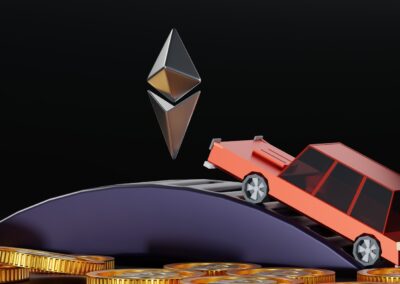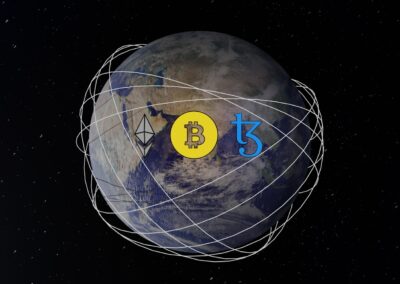Exploring the Rise of NFT Marketplaces
The Growing Demand for Unique Digital Assets
The success of NFT marketplaces, such as OpenSea, highlights the growing demand for unique digital assets and the potential for virtual economies to expand into new markets. Non-Fungible Tokens (NFTs) have revolutionized the digital landscape by providing a means to authenticate and trade digital assets securely on the blockchain. This innovation has not only captivated the tech-savvy but also attracted mainstream interest from various sectors, including art, gaming, and entertainment.
In regions like Saudi Arabia and the UAE, the adoption of NFTs has been notably robust. The cultural emphasis on art and heritage aligns well with the unique attributes of NFTs, enabling collectors and creators to preserve and showcase their digital artifacts. This convergence of tradition and modern technology is fostering a vibrant digital economy that extends beyond geographical boundaries. The success of platforms like OpenSea, which facilitate the buying, selling, and trading of NFTs, underscores the significant economic potential of these digital assets.
Economic Implications of NFT Marketplaces
The economic implications of NFT marketplaces are profound. By enabling the creation and exchange of digital assets, NFTs have unlocked new revenue streams for artists, musicians, and content creators. These marketplaces democratize access to global audiences, allowing creators from Riyadh, Dubai, and beyond to monetize their work in ways that were previously unimaginable. This shift is empowering a new generation of entrepreneurs and creatives, contributing to economic diversification in the region.
Moreover, the integration of Artificial Intelligence and Blockchain technologies in NFT marketplaces enhances their security and transparency. These technologies ensure the authenticity of digital assets and provide a tamper-proof ledger of transactions, fostering trust among users. As a result, investors and collectors are increasingly confident in the value and legitimacy of NFTs, driving further growth and innovation in the market. This trend is particularly significant in Dubai, where the government’s proactive stance on blockchain adoption is paving the way for a robust digital economy.
Challenges and Opportunities in Virtual Economies
Despite their success, NFT marketplaces face several challenges that need to be addressed to ensure sustainable growth. One of the primary concerns is the environmental impact of blockchain technology, particularly the energy consumption associated with proof-of-work mechanisms. Transitioning to more eco-friendly consensus algorithms, such as proof-of-stake, is essential to mitigate these concerns and ensure the long-term viability of NFT platforms.
Another challenge is the regulatory landscape. As the popularity of NFTs continues to surge, governments and regulatory bodies must establish clear guidelines to protect consumers and prevent fraudulent activities. In the UAE and Saudi Arabia, where regulatory frameworks for digital assets are still evolving, collaboration between the public and private sectors is crucial to create a conducive environment for innovation while safeguarding public interests. Additionally, ensuring compliance with international standards will be vital to attract global participants to these regional marketplaces.
Expanding Virtual Economies into New Markets
Leveraging Blockchain for Economic Growth
Blockchain technology, the backbone of NFT marketplaces, offers numerous opportunities for economic growth and diversification. By facilitating secure, transparent, and efficient transactions, blockchain can streamline various business processes and reduce operational costs. In regions like Riyadh and Dubai, where economic diversification is a strategic priority, leveraging blockchain technology can drive innovation across multiple sectors, including finance, healthcare, and supply chain management.
NFT marketplaces, in particular, can serve as catalysts for broader blockchain adoption. The success of platforms like OpenSea demonstrates the viability of blockchain-based business models and encourages other industries to explore similar applications. For instance, real estate, education, and retail sectors can benefit from the transparency and security provided by blockchain, enhancing their operational efficiency and customer trust. This cross-sectoral adoption of blockchain technology can stimulate economic growth and position cities like Riyadh and Dubai as global innovation hubs.
Fostering Innovation through Executive Coaching
Executive coaching services play a pivotal role in fostering innovation and leadership skills necessary to navigate the complexities of emerging digital markets. By equipping business leaders with the knowledge and tools to understand and leverage technologies like NFTs and blockchain, executive coaching can drive strategic decision-making and organizational transformation. In dynamic markets like the UAE and Saudi Arabia, where digital transformation is a national priority, executive coaching can empower leaders to capitalize on new opportunities and lead their organizations toward sustained success.
Furthermore, executive coaching can facilitate the development of leadership skills essential for managing diverse teams and fostering a culture of innovation. As businesses increasingly operate in virtual environments, the ability to lead effectively in digital settings becomes crucial. Coaching programs that focus on digital literacy, strategic thinking, and adaptive leadership can enhance executives’ capabilities to drive growth in the evolving digital economy.
The Future of Virtual Economies
The future of virtual economies is bright, with significant potential for expansion and innovation. As NFT marketplaces continue to evolve, new business models and revenue streams will emerge, further integrating digital assets into the broader economy. The success of platforms like OpenSea is just the beginning, as advancements in technology and increasing user adoption drive the next wave of growth.
In regions like Saudi Arabia, the UAE, Riyadh, and Dubai, embracing these opportunities can position them as leaders in the global digital economy. By fostering a supportive regulatory environment, investing in technological infrastructure, and promoting digital literacy, these regions can attract global talent and investment, driving sustained economic growth. The convergence of blockchain, Artificial Intelligence, and executive coaching will play a crucial role in shaping the future of virtual economies, creating a dynamic ecosystem where innovation and economic success thrive.
Conclusion
The rise of NFT marketplaces like OpenSea highlights the transformative potential of digital assets and virtual economies. By leveraging blockchain technology and fostering innovation, these marketplaces are creating new opportunities for economic growth and diversification. In regions like Saudi Arabia, the UAE, Riyadh, and Dubai, embracing these trends can drive significant economic benefits and position them as global leaders in the digital economy.
The challenges of environmental sustainability and regulatory compliance must be addressed to ensure the long-term success of NFT marketplaces. By promoting eco-friendly technologies and establishing clear regulatory frameworks, stakeholders can create a conducive environment for innovation and fair competition. As virtual economies continue to expand, the integration of advanced technologies and leadership skills will be essential to navigate the evolving digital landscape and achieve sustained business success.
#NFTMarketplaces #DigitalAssets #VirtualEconomies #OpenSea #Blockchain #ArtificialIntelligence #Metaverse #ExecutiveCoaching #GenerativeAI #BusinessSuccess #LeadershipSkills #ProjectManagement #SaudiArabia #UAE #Riyadh #Dubai























